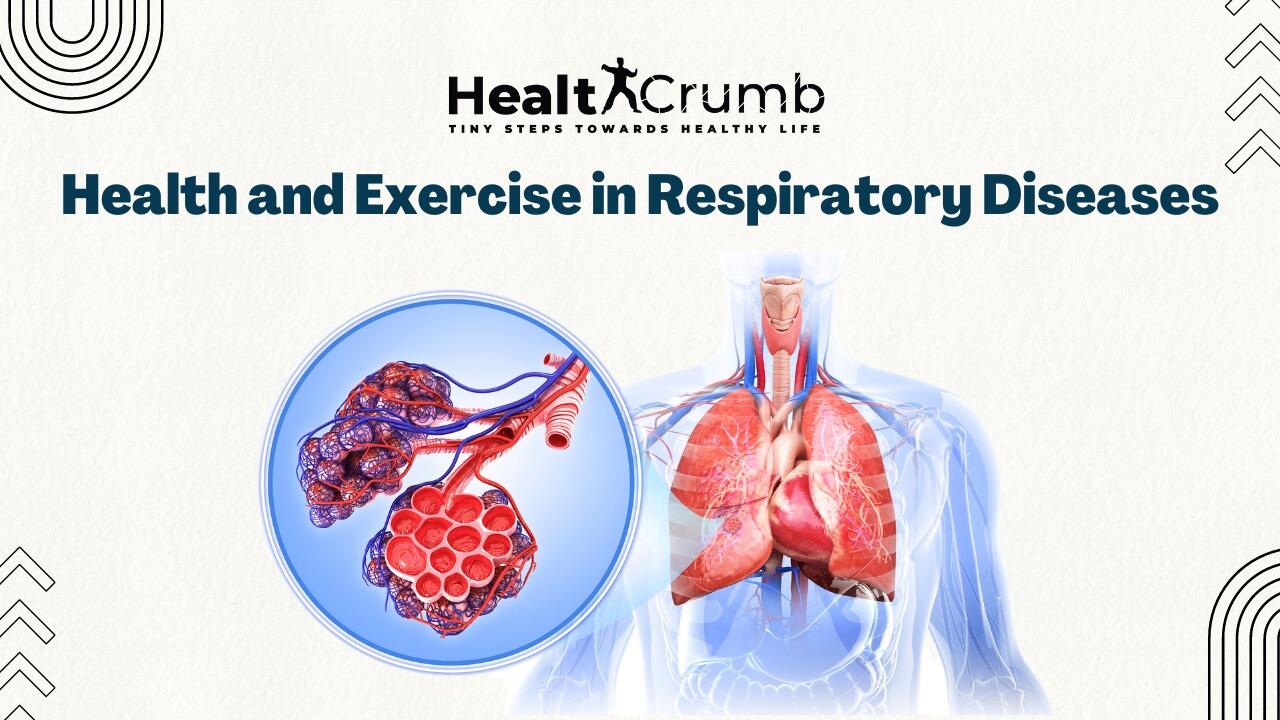Introduction
Respiratory diseases are a growing problem in our world today. With the increase in air pollution and other environmental factors, more and more people are being diagnosed with asthma, COPD, and other respiratory illnesses. While there is no cure for these diseases, there are things that we can do to help improve our lung function and overall health.
Exercise is one of the best ways to do this. In this blog post, we will explore the benefits of exercise for those suffering from respiratory diseases. We will also provide some tips on how to get started with an exercise routine.
What are Respiratory Diseases?
nurse mental health are a broad category of illnesses that affect the respiratory system, which includes the lungs, airways, and other structures in the chest. The most common respiratory diseases include asthma, bronchitis, and emphysema.
Asthma is a chronic lung disease that causes episodes of wheezing, shortness of breath, and chest tightness. These episodes can be triggered by environmental factors such as dust or pollen, or by exercise. Asthma is treated with medication to control the symptoms and prevent attacks.
Bronchitis is an inflammation of the airways that can be caused by infection or irritation. Symptoms of bronchitis include coughing up mucus, shortness of breath, and chest pain. Bronchitis is treated with rest, fluids, and sometimes antibiotics if it is caused by an infection.
Another respiratory disease is emphysema. With emphysema, the air sacs in the lungs gradually deteriorate because of damage. This damage makes it difficult to breathe and can eventually lead to death. Emphysema is treated with oxygen therapy to help improve breathing and medications to relieve symptoms.
How are Respiratory Diseases caused?
There are many ways in which respiratory diseases can be caused. The most common way is by exposure to a virus or bacteria. This can happen through contact with an infected person, or by inhaling airborne particles from an infected person. Some other causes include:
- Exposure to harmful chemicals or pollutants
- Inhaling smoke from cigarettes, cigars, or fires
- Allergic reactions to dust, mold, pollen, or other allergens
- Work-related exposure to hazardous materials
No matter how respiratory diseases are caused, it is important to seek medical treatment as soon as possible. If left untreated, respiratory diseases can lead to serious complications and even death.
What are the Different Types ?
There are many different types of respiratory diseases, each with its symptoms and treatment. The most common diseases include asthma, bronchitis, and COPD (chronic obstructive pulmonary disease).
Asthma is a chronic inflammatory disorder of the airways that causes episodes of wheezing, shortness of breath, chest tightness, and coughing. Asthma can be controlled with medication and avoiding triggers such as environmental irritants or allergens.
Bronchitis is an inflammation of the bronchi, the large airways that lead to the lungs. Bronchitis can be caused by a viral infection or exposure to irritants such as cigarette smoke. Symptoms of bronchitis include coughing up mucus, shortness of breath, and chest pain. Bronchitis is treated with rest, fluids, and over-the-counter medications to relieve symptoms.
Another progressive lung disease is COPD. This disease makes it difficult to breathe. COPD is caused by long-term exposure to irritants such as cigarette smoke or airborne particles. Shortness of breath, wheezing, and coughing are some of the symptoms of COPD. COPD is treated with medications to help manage symptoms and prevent further damage to the lungs.
Role of Health and Exercise in Respiratory Diseases
The role of health and exercise in respiratory diseases is two-fold. First, healthy lifestyle choices can help prevent the development of respiratory diseases. Second, exercise can help improve the symptoms of respiratory diseases.
Several respiratory diseases can be prevented or minimized by living a healthy lifestyle. These include:
- Smoking is the leading cause of preventable death in the United States and is a major risk factor for developing lung cancer, COPD, and other respiratory diseases. Quitting smoking, or never starting, is the best way to protect your lungs.
- Exposure to secondhand smoke also increases your risk of developing lung cancer and other respiratory problems. Avoiding exposure to secondhand smoke is important for protecting your lungs.
- Several respiratory diseases are caused by viruses or bacteria. You can help protect yourself from these infections by washing your hands often and avoiding close contact with people who are sick. Getting vaccinated against influenza and pneumonia can also help reduce your risk of getting these infections.
- Air pollution can also contribute to the development of respiratory problems. Reducing your exposure to air pollution by staying indoors when air quality is poor and wearing a mask when outdoors can help minimize your risk.
Exercise is important for people with respiratory problems for many reasons. First, exercise can help improve overall fitness and muscle strength, which can in turn improve breathing. Exercise may also help clear mucus from the lungs, and improve lung function in people with COPD. Additionally, exercise can help reduce stress and improve mood, which can be helpful for people with asthma and other respiratory diseases.
The Relationship Between Exercise and Respiratory Diseases
It is commonly believed that exercise can help improve respiratory function and prevent respiratory diseases. However, there is still much debate surrounding the relationship between exercise and respiratory diseases. Some studies suggest that exercise can worsen respiratory symptoms in people with certain conditions, such as asthma or COPD. It is important to consult with a doctor before starting an exercise program if you have a respiratory condition.
There are several mechanisms by which exercise can influence the development or progression of respiratory diseases. Exercise can affect lung function directly, by increasing ventilation and promoting bronchodilation. Exercise also has indirect effects on the lungs by affecting other systems in the body, such as the cardiovascular system. Finally, physical activity can influence immune function, which can play a role in the development or severity of respiratory infections.
The evidence for the benefits of exercise in preventing or treating respiratory diseases is mixed. Some studies have found that regular physical activity can improve lung function and reduce the risk of developing asthma or COPD. Other studies have found no significant effects of exercise on these conditions. The conflicting results may be due to differences in study design, populations studied, or other factors.
Overall, it appears that moderate amounts of regular exercise may be beneficial for people with certain respiratory conditions, while strenuous activity may worsen symptoms. It is important to consult with a doctor before starting an exercise program if you have a respiratory condition.
The Importance of Exercise
Exercise is an important part of respiratory disease management and can help improve lung function and quality of life. Regular physical activity can help to:
- Reduce the severity of symptoms
- Improve overall fitness and well-being
- Increase strength and endurance
- Decrease the risk of complications
People with respiratory diseases such as COPD, asthma, and bronchitis often find that their symptoms worsen with exertion. This can make it difficult to stick to an exercise routine. However, it is important to keep up with regular physical activity as much as possible. Exercise has many benefits for people with respiratory diseases, even if it may not always be easy to do.=
The Benefits of Exercise in Respiratory Diseases
There are many benefits of exercise for respiratory diseases. First, exercise can help to improve your lung function and make it easier to breathe. Second, exercise can help to clear the mucus from your lungs and prevent it from building up. Third, exercise can help to reduce the inflammation in your lungs. Fourth, exercise can help to improve your overall health and well-being. Fifth, exercise can help to reduce the risk of developing respiratory diseases.
The Risks of Exercise in Respiratory Diseases
There are many different types of respiratory diseases, some of which are more serious than others. Some respiratory diseases can be made worse by exercise, so it’s important to know the risks before you start an exercise program.
If you have a respiratory disease, talk to your doctor before you start exercising. You may need to avoid certain types of activities or take special precautions. For example, if you have asthma, you may need to use an inhaler before and after exercising.
There are some other things that you should keep in mind. These are:
- Start slowly and build up gradually.
- Avoid hot, humid weather and cold air, which can trigger symptoms. Exercise indoors or in cool weather if possible.
- Wear loose-fitting clothing and a face mask or scarf over your mouth and nose in cold weather. This will help warm the air before you breathe it in.
- Drink plenty of fluids before, during, and after exercise to prevent dehydration.
Conclusion
There is no doubt that exercise plays an important role in our overall health and well-being. However, it is especially important for people with respiratory diseases. Exercise can help to improve lung function, increase endurance and strength, and reduce symptoms. It is important to consult with a doctor before starting any type of exercise program, but there are many options available that can be tailored to individual needs and abilities. With the right guidance and support, everyone can benefit from incorporating exercise into their lives – no matter what their health situation may be.



